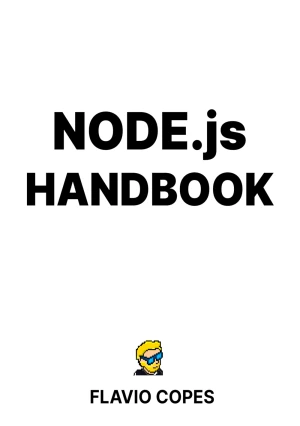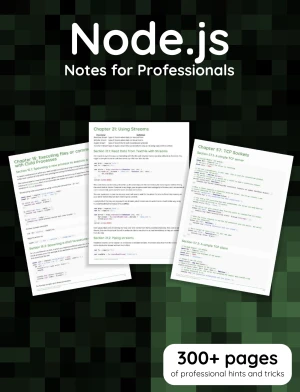You Don't Know JS Yet: Scope and Closures, 2nd Edition


Book Details
| Author | Kyle Simpson |
| Publisher | Leanpub |
| Published | 2020 |
| Edition | 2nd |
| Paperback | 279 pages |
| Language | English |
| ISBN-13 | 9798621536459 |
| ISBN-10 | 8621536455 |
| License | Creative Commons Attribution-NonCommercial-NoDerivatives |
Book Description
The worldwide best selling You Don't Know JS book series is back for a 2nd edition: You Don't Know JS Yet. All 6 books are brand new, rewritten to cover all sides of JS for 2020 and beyond. You'll still get in-depth coverage of the core language, applied in useful code organization patterns for your programs. And of course, through Kyle's unique perspective and conversational tone, explore passionate, reasoned debate of the most common questions developers face.
Scope & Closures, the second book in the new edition series, dives deep into how and why to organize variables into different buckets of scope, limiting scope over-exposure and improving code maintainability. On top of lexical scope, closure empowers functions with memory, preserving variables across calls. Modules leverage scope and closures to encapsulate data and behavior.
In Scope & Closures, you'll dig into:
- Nesting lexical scopes with functions and blocks, to limit scope exposure of variables
- Functions remembering variables through closure
- Modules, one of the most important code organization patterns in programming
This book is available under a Creative Commons Attribution-NonCommercial-NoDerivatives license (CC BY-NC-ND), which means that you are free to copy and distribute it, as long as you attribute the source, don't use it commercially, and don't create modified versions.
If you enjoyed the book and would like to support the author, you can purchase a printed copy (hardcover or paperback) from official retailers.
Download and Read Links
Share this Book
[localhost]# find . -name "*Similar_Books*"
You Don't Know JS Yet: Get Started, 2nd Edition
The worldwide best selling You Don't Know JS book series is back for a 2nd edition: You Don't Know JS Yet. All 6 books are brand new, rewritten to cover all sides of JS for 2020 and beyond. You'll still get in-depth coverage of the core language, applied in useful code organization patterns for your programs. And of course, through Kyle's unique pe
You Don't Know JS: Up & Going
It's easy to learn parts of JavaScript, but much harder to learn it completely - or even sufficiently - whether you're new to the language or have used it for years. With the "You Don't Know JS" book series, you'll get a more complete understanding of JavaScript, including trickier parts of the language that many experienced JavaScript programmers
97 Things Every SRE Should Know
Site reliability engineering (SRE) is more relevant than ever. Knowing how to keep systems reliable has become a critical skill. With this practical book, newcomers and old hats alike will explore a broad range of conversations happening in SRE. You'll get actionable advice on several topics, including how to adopt SRE, why SLOs matter, when you ne
97 Things Every Software Architect Should Know
In this truly unique technical book, today's leading software architects present valuable principles on key development issues that go way beyond technology. More than four dozen architects - including Neal Ford, Michael Nygard, and Bill de hOra - offer advice for communicating with stakeholders, eliminating complexity, empowering developers, and m
Node.js Handbook
Node.js is built on top of the Google Chrome V8 JavaScript engine, and it's mainly used to create web servers - but it's not limited to that. Node.js Handbook follows the 80/20 rule: learn in 20% of the time the 80% of a topic. The author find this approach gives a well-rounded overview.
Node.js Notes for Professionals
The Node.js Notes for Professionals book is compiled from Stack Overflow Documentation, the content is written by the beautiful people at Stack Overflow.






